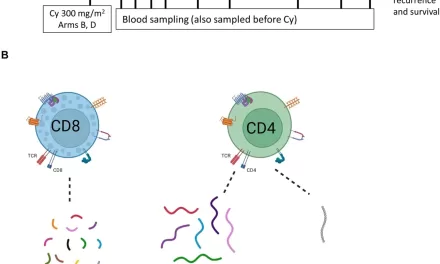As cannabis gains popularity and acceptance, a growing concern arises for breastfeeding mothers who use the drug. A recent study published in the journal Breastfeeding Medicine sheds light on the presence of THC, the psychoactive component of cannabis, in the breast milk produced by these mothers.
Led by Courtney Meehan, a biological anthropologist at Washington State University, the groundbreaking research analyzed breast milk donated by 20 breastfeeding mothers who used cannabis. The aim was to uncover how long cannabinoids, like THC, persisted in breast milk and the potential effects on infants.
Meehan emphasized the need for awareness among breastfeeding parents, stating, “Breastfeeding parents need to be aware that if they use cannabis, their infants are likely consuming cannabinoids via the milk they produce, and we do not know whether this has any effect on the developing infant.”
The study found low levels of THC in breast milk, with an estimated average of 0.07 mg per day consumed by infants. While this amount may seem minimal compared to other sources of THC, such as edibles, its impact on infants remains unknown.
Lead author Elizabeth Holdsworth highlighted the challenge for breastfeeding mothers in timing their feeds, as THC concentrations in breast milk showed no consistent peak or decline. This variability complicates efforts to avoid feeding infants when THC levels are at their highest.
Furthermore, the study underscored the lack of research on the interaction between cannabis and breastfeeding. Unlike alcohol, there are no established guidelines for cannabis use among breastfeeding mothers, leaving many questions unanswered.
The research team also conducted a qualitative study revealing that many breastfeeding mothers use cannabis for therapeutic purposes, such as managing anxiety or chronic pain, viewing it as a safer alternative to other medications.
Shelley McGuire, a co-author of the study, emphasized the thoughtful decision-making process of these mothers, stating, “Our results suggest that mothers who use cannabis are being thoughtful in their decisions. These women were mindful about their choices. This is far from a random lifestyle choice.”
However, McGuire stressed the need for substantial and rigorous research on THC and breast milk to provide mothers with evidence-based guidance.
The study calls for further research on cannabis use in breastfeeding mothers, the composition of breast milk, and its effects on infant development. By prioritizing this area of study, researchers aim to create a safer and more informed environment for mothers and their babies.
In summary, as cannabis use continues to evolve, breastfeeding mothers face unique challenges and uncertainties. The study highlights the importance of evidence-based decision-making and the urgent need for further research to support mothers in navigating cannabis use while breastfeeding.
The full study was published in the journal Breastfeeding Medicine, marking an important step towards understanding the complex relationship between cannabis use and breast milk.











